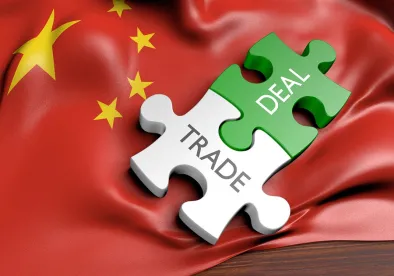Effective June 24, 2019, the U.S. Department of Commerce’s Bureau of Industry and Security (BIS) will add five more Chinese entities, including research institutions, to its prohibited "Entity List." Following closely on the heels of the recent designation of Huawei and its affiliates, this underscores the U.S. government’s continued efforts to tighten restrictions on U.S. companies’ technology transfers to and collaboration with Chinese entities and research institutions. Companies that have contacts with or commercial relationships with China should be prepared for potential further additions in the coming weeks and months.
As a result of the latest BIS action, a license will be required to export, reexport, or transfer any items (including commodities, software, and technology) that are subject to the Export Administration Regulations (EAR) to the following entities:
-
Chengdu Haiguang Integrated Circuit, including two aliases (Hygon and Chengdu Haiguang Jincheng Dianlu Sheji);
-
Chengdu Haiguang Microelectronics Technology, including two aliases (HMC and Chengdu Haiguang Wei Dianzi Jishu);
-
Higon, including five aliases (Higon Information Technology, Haiguang Xinxi Jishu Youxian Gongsi, THATIC, Tianjing Haiguang Advanced Technology Investment, and Tianjing Haiguang Xianjin Jishu Touzi Youxian Gongsi);
-
Sugon, including nine aliases (Dawning, Dawning Information Industry, Sugon Information Industry, Shuguang, Shuguang Information Industry, Zhongke Dawn, Zhongke Shuguang, Dawning Company, and Tianjin Shuguang Computer Industry);
-
Wuxi Jiangnan Institute of Computing Technology, including two aliases (Jiangnan Institute of Computing Technology and JICT).
License applications will be reviewed with a presumption of denial, effectively barring most transactions involving items subject to the EAR—including collaborative research and technology transfer arrangements. There is no grace period or grandfathering of existing contracts or agreements under the latest BIS action.
Violations of the Entity List or other EAR restrictions can result in severe civil and criminal penalties, including civil penalties per transaction of up to $300,000 or twice the value of the transaction (whichever is higher) and criminal penalties of up to $1 million and 20 years’ imprisonment. Entities suspected of violating these restrictions can also have their own export privileges revoked, can be debarred from participation in U.S. government contracts, and may themselves be listed on the Entity List or on other denied party lists.
The latest action is part of a coordinated series of U.S. government export control and national security initiatives involving China. These are aimed at bringing a "whole of government" approach to address concerns about forced technology transfers, technology theft, and other issues implicating U.S. national security.
It is expected that additional Chinese entities and individuals may be designated under the Entity List or other U.S. government denied party and sanctions lists in the coming weeks and months. Companies doing business in China or with Chinese companies should closely follow developments in this area and be prepared to take prompt action to protect their interests.




 />i
/>i
